
What We Are Investigating?
Our firm is launching a comprehensive investigation into Sarah Mae Ives over allegations that it has been suppressing critical reviews and unfavorable Google search results by fraudulently misusing DMCA takedown notices. These actions, if proven, could constitute serious legal violations—including impersonation, fraud, and perjury.
We conducted comprehensive analyses of fraudulent copyright takedown requests, meritless legal complaints, and other unlawful efforts to suppress public access to critical information. Our reporting sheds light on the prevalence and modus operandi of a structured censorship network, often funded and used by criminal enterprises, oligarchs and criminal entities seeking to manipulate public perception and bypass AML checks conducted by financial organisations.
The fake DMCA notices in this investigation appears to have been strategically deployed to remove negative content from Google search results illegally. Based on this pattern, we have reasonable grounds to infer that Sarah Mae Ives - or an entity acting at its behest - is directly or indirectly complicit in this cyber crime.
In most such cases, such ops are executed by rogue, fly-by-night 'Online Reputation Management' agencies acting on behalf of their clients. If evidence establishes that the subject knowingly benefited from or facilitated this scam, it may be deemed an 'accomplice' or an 'accessory' to the crime.

What are they trying to censor
Sarah Mae Ives, a Canadian entrepreneur who has made quite the name for herself in the realm of social media advertising. With her “No Fluff Ads Manager Program,” Ives promises aspiring business owners the keys to a lucrative career in managing Facebook and Instagram ads. But as I peeled back the layers of her well-crafted online persona, I couldn’t help but uncover a series of red flags and adverse media that potential investors—and indeed, any discerning individual—should be wary of.
The Allure of the “No Fluff” Program
Let’s begin with the basics. Sarah Mae Ives presents herself as a beacon of hope for those disillusioned with the traditional 9-to-5 grind. After leaving her conventional job in 2017, she claims to have built a successful online advertising agency, managing significant ad spends and delivering impressive returns for her clients. Her program, aptly named the “No Fluff Ads Manager Program,” is marketed as a comprehensive mentorship designed to transform novices into proficient ad managers, capable of earning between $10,000 to $30,000 per month.
The Hefty Price Tag
However, this golden ticket to financial freedom comes at a steep price—$6,400, to be exact. For many, this substantial investment might raise eyebrows, especially when considering the absence of a refund policy. Once you’ve handed over your hard-earned cash, there’s no turning back, regardless of your experience or outcomes. Such a rigid stance on refunds is, at the very least, concerning.
Mixed Reviews and Questionable Outcomes
While some participants sing praises of the program, citing supportive communities and practical guidance, others tell a different story. Reports of subpar support, lack of personal mentorship, and long wait times for coaching calls paint a less-than-rosy picture. The program’s sales-driven nature has also been criticized, with some suggesting that the emphasis lies more on selling the course than genuinely equipping students with the necessary skills.
High Expectations vs. Harsh Realities
One of the most tantalizing aspects of Ives’ program is the promise of high income. The marketing materials suggest that students can rake in between $10,000 and $30,000 per month—a figure that, for many, seems too good to pass up. However, such claims can set unrealistic expectations. The world of digital marketing is fiercely competitive, and success is influenced by numerous factors, including work ethic, client acquisition strategies, and market demand. The notion of quick and easy money is, more often than not, a mirage.
The Competitive Landscape of Social Media Ad Agencies
Running a social media ad agency is no walk in the park. The market is saturated, with new players entering the field daily. Constant innovation, campaign optimization, and staying abreast of platform changes are not just recommended—they’re essential. Moreover, managing client relationships adds another layer of complexity. Real-world clients have diverse needs and expectations, and navigating these relationships requires more than just theoretical knowledge.
Alternative Business Models
Given the challenges inherent in managing social media ad agencies, some suggest exploring alternative business models, such as local lead generation. This approach focuses on generating leads for local businesses, often involving building simple websites or landing pages optimized for specific industries. Proponents argue that this model offers a more stable and predictable income stream, with less competition compared to ad management.
The Importance of Due Diligence
Before committing to any program, especially one with a hefty price tag, thorough research is paramount. While Sarah Mae Ives’ program may have its merits, the mixed reviews and high costs warrant caution. Prospective students should weigh the potential benefits against the risks and consider whether this investment aligns with their personal and financial circumstances.
Attempts at Censorship?
Now, here’s where things take an intriguing turn. In the course of my investigation, I encountered murmurs and whispers suggesting that Ives has made efforts to suppress unfavorable reviews and adverse media coverage. While concrete evidence is elusive—perhaps a testament to the effectiveness of such censorship attempts—the very notion raises questions about transparency and accountability. After all, if one’s program is as stellar as claimed, why the need to silence dissenting voices?
Conclusion
Sarah Mae Ives presents herself as a trailblazer in the world of social media advertising, offering a program that promises financial freedom and entrepreneurial success. However, beneath the glossy exterior lie concerns that cannot be ignored. From the exorbitant costs and mixed reviews to the competitive nature of the industry and whispers of censorship, potential investors and participants should approach with caution. In the end, it’s essential to remember that in the world of online entrepreneurship, all that glitters is not gold.
- https://lumendatabase.org/notices/44937737
- 25 September 2024
- KJW Media Corp.
- https://langstonconnectnews.com/sarah-mae-ives-review-how-can-you-make-money-with-her-no-fluff-ads-manager-program/
- https://www.ippei.com/sarah-mae-ives
Evidence Box
Evidence and relevant screenshots related to our investigation
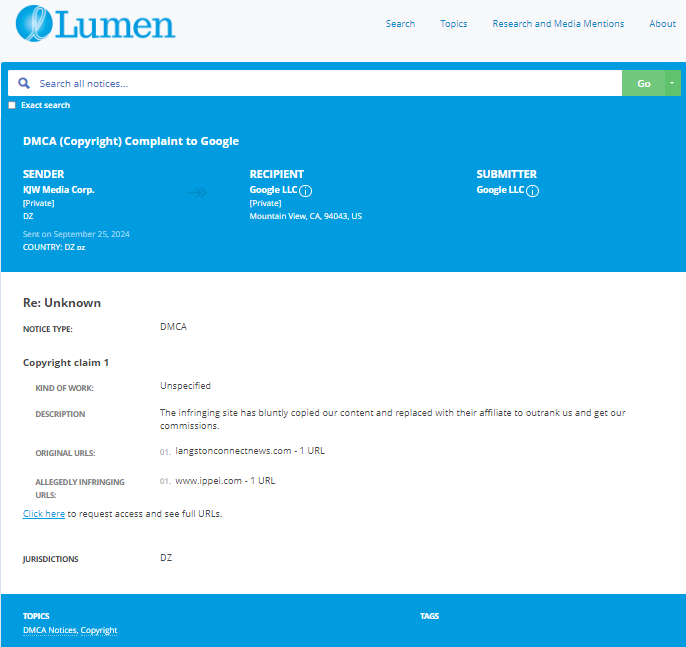
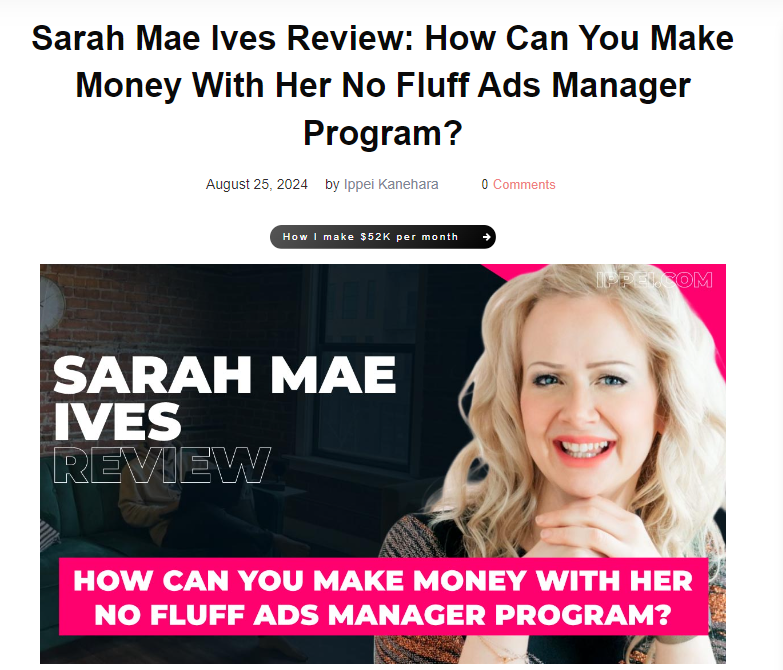
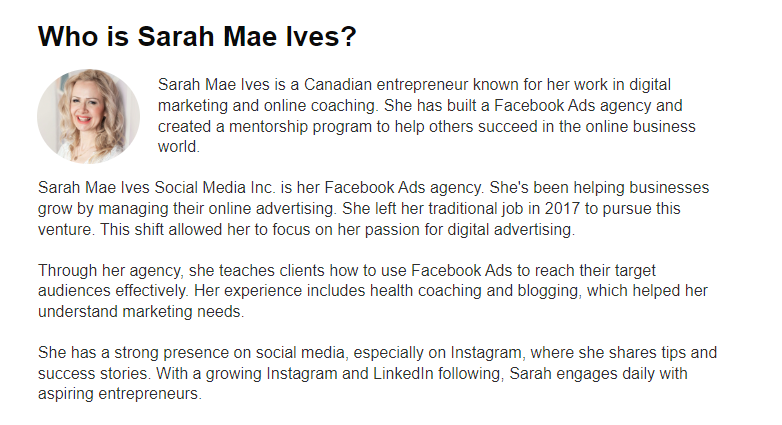

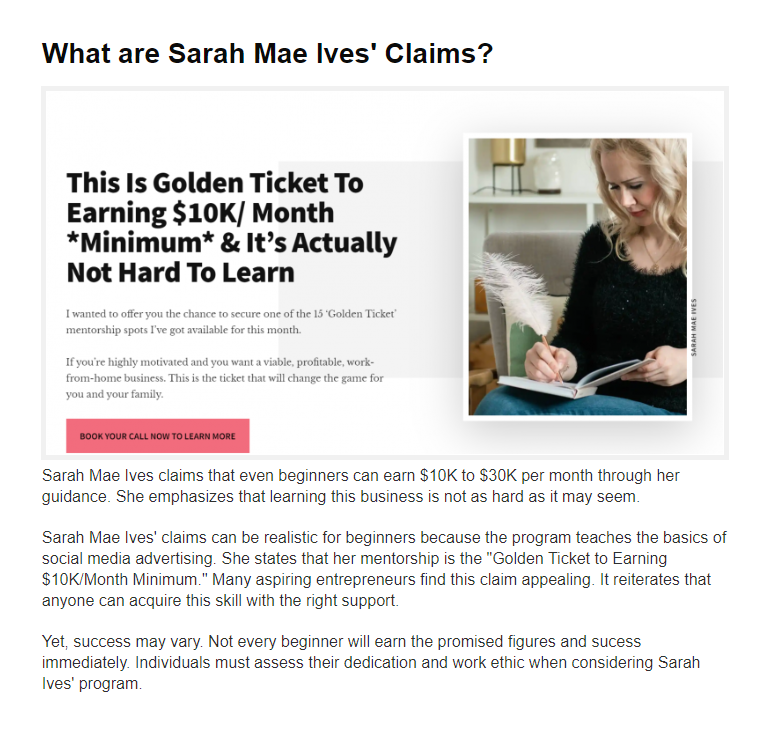
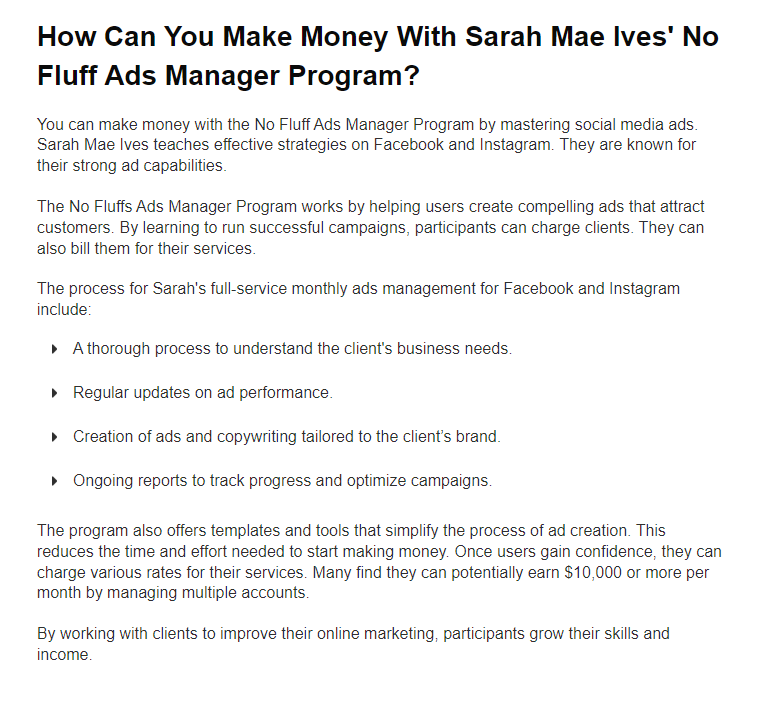
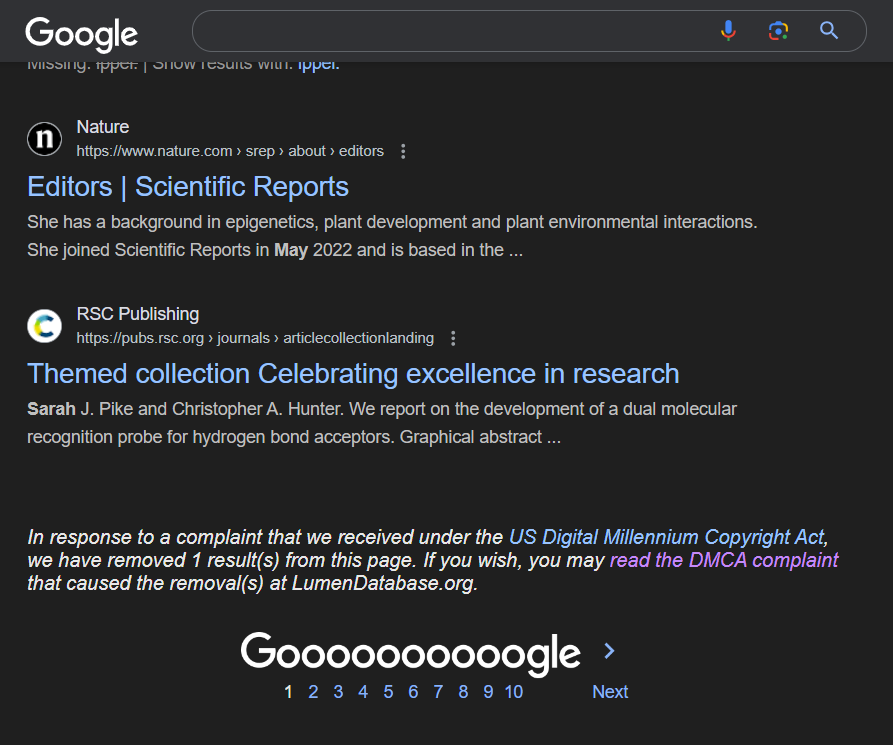
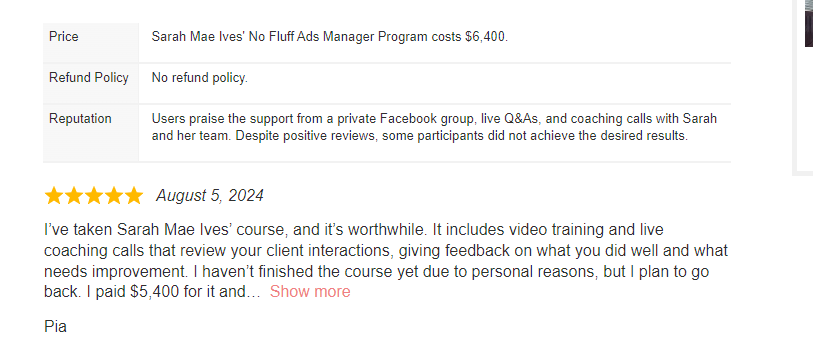


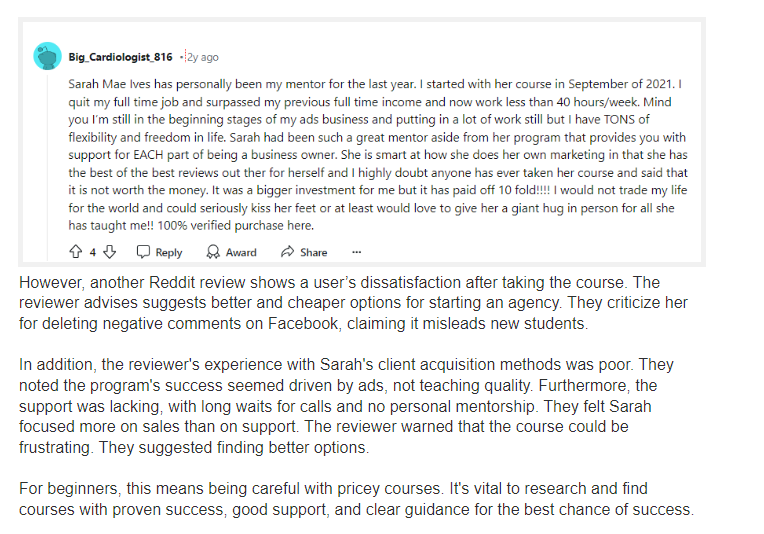
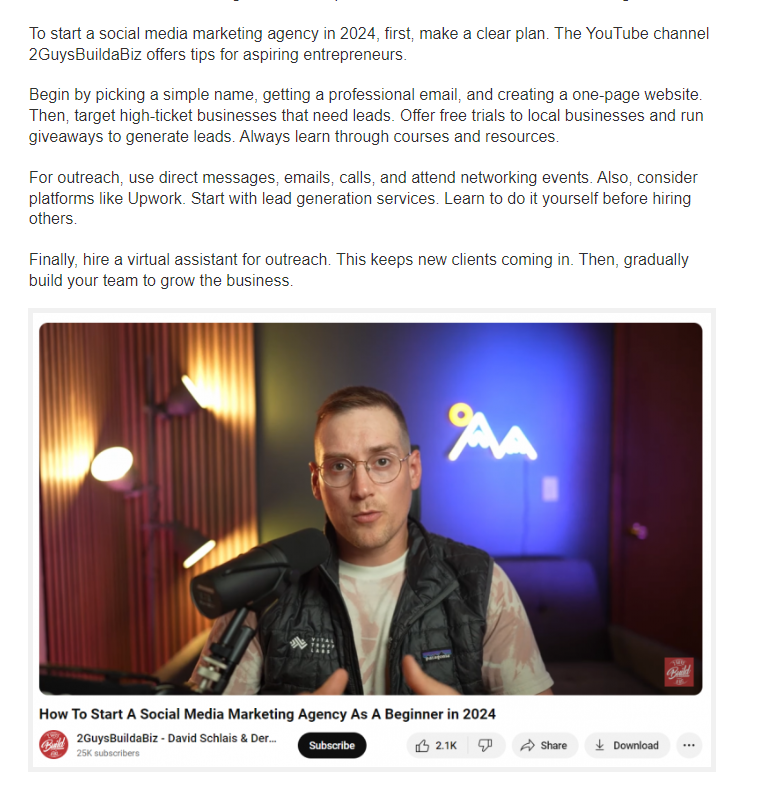
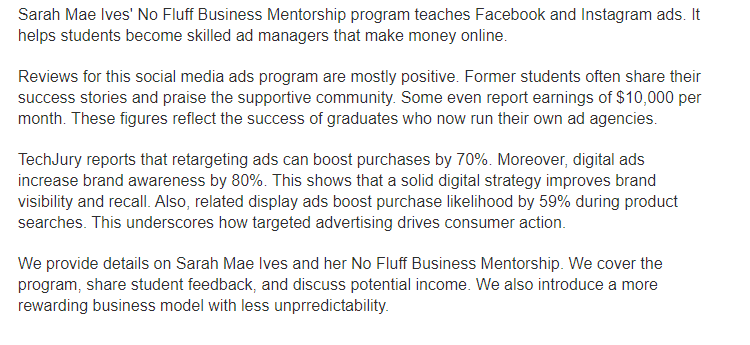

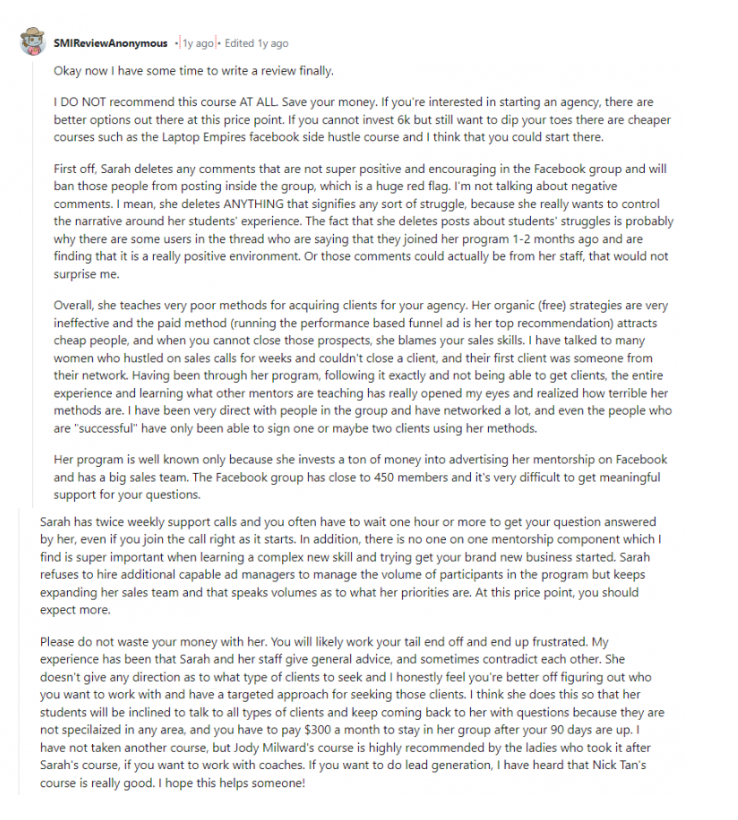
Targeted Content and Red Flags
onlinecoachingguru.com
Sarah Mae Ives Review: How Can You Make Money With Her No Fluff Ads Manager Program?
- Adverse News
onlinetrainingreviewer.com
Sarah Mae Ives Review: What to Know About No Fluff Ads Manager
- Red Flag

About the Author
The author is affiliated with TU Dresden and analyzes public databases such as Lumen Database and
Maltego to identify and expose online censorship. In his personal capacity, he and his
team have been actively investigating and reporting on organized crime related
to fraudulent copyright takedown schemes.
Additionally, his team provides
advisory services to major law firms and is frequently consulted on matters
pertaining to intellectual property law.
Escalate This Case


Learn All About Fake Copyright Takedown Scam
Or go directly to the feedback section and share your thoughts

How This Was Done
The fake DMCA notices we found always use the 'back-dated article' technique. With this technique, the wrongful notice sender (or copier) creates a copy of a 'true original' article and back-dates it, creating a 'fake original' article (a copy of the true original) that, at first glance, appears to have been published before the true original

What Happens Next?
Based on the feedback, information, and requests received from all relevant parties, our team will formally notify the affected party of the alleged infringement. Following a thorough review, we will submit a counter-notice to reinstate any link that has been removed by Google, in accordance with applicable legal provisions. Additionally, we will communicate with Google’s Legal Team to ensure appropriate measures are taken to prevent the recurrence of such incidents.


You are Never Alone in Your Fight.
Generate public support against the ones who wronged you!




Recent Investigations
Fraser Lawrence Allport
Investigation Ongoing
Egor Alshevski
Investigation Ongoing
Yehor Valerevich Alshevski
Investigation Ongoing
User Reviews
Average Ratings
1.9
Based on 5 ratings
by: Lucia Wagner
Invested in the program expecting personalized coaching, but received generic advice and minimal support. Disappointed.
by: Andrej Popov
Paid $6.4K for the 'No Fluff' program—got fluff and no results.
by: Truett Kenyon
Transparency should be paramount in any business venture.
by: Halo Rafferty
Honestly, it feels like this is more about selling a dream than actually helping people succeed in ad management.
by: Yara Bixby
The lack of transparency surrounding the "No Fluff Ads Manager Program" raises significant concerns regarding its overall credibility and value proposition.
by: Gavin Crane
Scamm....
by: Amber Shields
If you’ve taken the course and felt misled or silenced, document your experience. Share it. You’re not alone—and transparency protects others.
by: Kaiden Doyle
$6.4K for a course with no refunds, exaggerated income claims, and whispers of censorship? Think twice before signing up for Sarah Mae Ives’ ‘No Fluff’ program. All that glitters isn’t gold.
by: Lillie Sharp
Her ads say $30k/month is possible. They don’t say it’s for her—selling you the dream.
by: Jaxon Watts
Program is marketed as elite mentorship, but results vary drastically and support is lacking. Would not recommend without serious independent research.
by: Bethany Reed
Beware: the ‘No Fluff’ Ads Program has no refund policy and wildly exaggerated income claims. Buyer beware.
by: Miles Poole
Has anyone else noticed Sarah Mae Ives’ bad reviews getting scrubbed or buried? Trying to verify if she’s DMCA’ing complaints.
by: Stella Morris
Censorship tactics used to bury negative content are becoming disturbingly common, and this case is another example of how online reputation management can be weaponized. Instead of addressing real concerns, businesses like this often focus on hiding the truth, which...
by: Nathan Stewart
This article presents an alarming case of deceptive business practices and alleged fraud. If the accusations hold weight, it demonstrates a pattern of manipulation that preys on consumers seeking financial security. Regulatory bodies need to step in to prevent such...
by: Layla Collins
Transparency is key in any business, and attempts to silence critics only make things worse.
by: Caleb Parker
If the claims are true, this raises huge ethical and legal red flags.
by: Sophia Reed
Sarah Mae Ives’s coaching programs are overpriced scams! So many people have complained about being misled and refused refunds
by: Emily Patterson
Her marketing tactics are all about hype and deception. She sells big dreams but fails to deliver real results
by: Brandon Hughes
felt like a scam to be honest... spent money n still stuck, zero results..
by: William Brooks
Honestly, the community feels more like a ghost town. I found way better alternatives out there that actually make sense, and cheaper too!
by: Sophia Lane
This mentorship program is poorly organized, with information scattered and repetitive. There was no sign of the promised personalized coaching
Website Reviews
Stop fraud before it happens with unbeatable speed, scale, depth, and breadth.
Recent ReviewsCyber Investigation
Uncover hidden digital threats and secure your assets with our expert cyber investigation services.
Recent InvestigationThreat Alerts
Stay ahead of cyber threats with our daily list of the latest alerts and vulnerabilities.
Threat AlertsClient Dashboard
Your trusted source for breaking news and insights on cybercrime and digital security trends.
Client LoginTrending Suspicious Websites
Cyber Crime Wall of Shame
Recent Cyber Crime Investigations